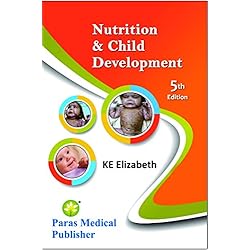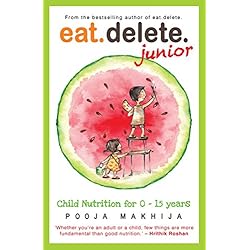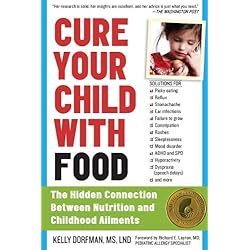Every family needs to maintain a healthy diet throughout life. It is very important for children to have a healthy eating lifestyle in order to have normal growth and development. Children need all the necessary nutrients from foods and drinks like milk, vegetables, fruits and other products. Plenty of exercise and play will have an immediate impact on the well-being of your child. In this article, we talk about the Diet Requirements For Children.
Diet Requirements For Children
- Good Habits
Establishing good eating and exercise habits early in life will help your child achieve their growth potential and provide a strong foundation for a healthy life. Children need almost the same types of foods as adults but in smaller proportions. A good balanced diet will help in the proper brain development of the child.
- Calcium needed for healthy bones
Calcium plays an important part in the development of a child’s bones. Though the height of the child is inherently dependant on the parents height, children who do not get enough vitamin D and calcium will be shorter than other children of the same age. Children being always active and playful need to eat healthy foods constantly and frequently inorder to replenish the calories they burn.
- Energy and nutrient needs of your child
Everyone’s body composition is made up of body fat, muscle, bone etc. In addition to the amount of physical exercise a child does, their age will determine their energy and nutrient requirements. For e.g., the more muscle an adolescent boy or girl has, the greater is the calorie requirement.
Toddlers have a high amount of body fat which starts to decrease as they enter their primary school years. During puberty, the child’s body fat will increase again. Boys and girls have similar amounts of body fat until the end of their adolescent years. Boys lose some of their fat in their adolescent years while girls still have it until their adult years. So boys have higher energy requirements than girls.
Below is a table with the approximate calorie requirement age-wise for boys and girls
| Age | Boys Calories(Approx.) | Girls Calories)(Approx.) |
| 1-3 years | 1230 Calories | 1165 Calories |
| 4-6 years | 1715 Calories | 1545 Calories |
| 7-10 years | 1970 Calories | 1740 Calories |
| 11-14 years | 2220 Calories | 1845 Calories |
| 15-18 years | 2755 Calories | 2110 Calories |
- Vitamin and mineral supplements
As long as children eat a varied diet, they do not need additional supplements. However, today most children are fussy eaters and so their body gets insufficient amount of vitamins and minerals. This has resulted in the need for mineral and vitamin supplements.
Calcium
Most children get enough calcium if they have milk, yogurt, healthy cheese etc., in their diet.
Vitamin D
If a child does not eat meat or oily fish and does not spend time outdoors in the daylight, then there may be a deficiency of vitamin D. A deficiency of vitamin D causes diseases like rickets and other bone problems.
Iron
It is an important requirement for a child’s body. New-borns get enough iron requirements from their mother through breast milk. It is important to eat iron-rich foods or else take iron-fortified cereals or other foods to prevent iron deficiency.
Minerals
Minerals plays an important role in the formation of bones and teeth. It helps the body process fat and protein. It is necessary for the secretion of the parathyroid hormone which helps to control the levels of calcium in the blood. Magnesium can be found in whole grains, spinach, tofu, red meat, beans, pulses and nuts like cashews and peanuts etc.
Phosphorous
It is essential for the development of the body. The amount of phosphorus absorbed from food varies depending upon the need for the mineral. The deficiency in phosphorous can lead to muscle weakness and bone pain. Phosphorous can be found in lentils, seafood, almonds, sunflower seeds etc.
Potassium
Along with sodium and chloride, potassium is involved in controlling the amount of water and maintaining the correct acid-alkali balance in the body. Potassium also helps the body store blood sugar in the form of glycogen, which is the principal source of energy required by all muscles in the body to function properly. Potassium can be found in potatoes, avocados, asparagus, bananas, oranges, and tomatoes.
Sodium
Sodium is commonly known as salt. It is one of the most over consumed minerals. Increased salt intake leads to nausea, vomiting, and diarrhea.
Zinc
Although it is needed in minute amounts, it is essential for the breakdown of carbohydrates, fats and proteins in normal cell division. Foods that have zinc are eggs, shellfish like crab, oysters, lobsters and soya beans etc.
These are some of the important things that need to be kept in mind while determining the food habits of your family, especially children. The choices you make while buying food will have an impact on the health, vitality and the well-being of your family. Eating foods from all food groups in the right quantities will help you achieve maximum benefits.
Hope you have enjoyed reading this article on Diet Requirements For Children. Please check our earlier article on Lifestyle habits of a healthy family.
The post Diet Requirements For Children appeared first on Smart Woman World.
from Smart Woman World https://ift.tt/2JHO94I
via IFTTT Diet Requirements For Children Pricilla



Comments
Post a Comment